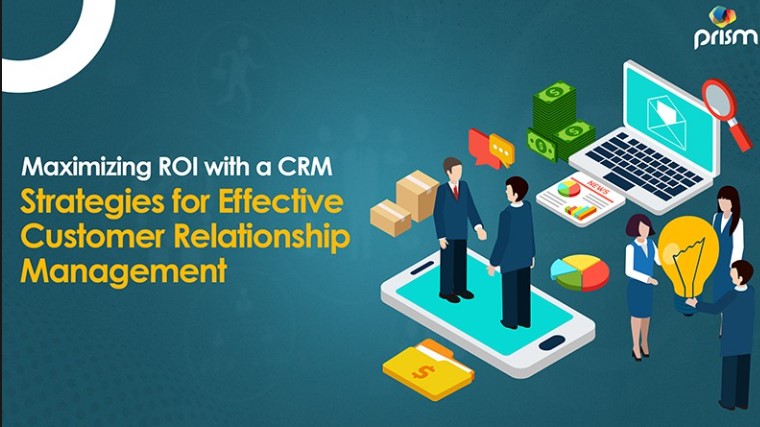In today’s competitive business landscape, customer relationship management (CRM) is more important than ever. A CRM system can help you manage customer interactions, improve customer satisfaction, and drive sales growth. With so many CRM tools available on the market, it can be difficult to choose the right one for your business. In this article, we will explore the top 20 CRM tools that can help you maximize your business potential.
Best All-In-One CRM Tools
- Salesforce: Salesforce is a leading CRM tool that offers a comprehensive suite of features including sales automation, marketing automation, customer service automation, and analytics.
- HubSpot: HubSpot offers an all-in-one CRM tool that includes features like contact management, email tracking, sales automation, and marketing automation.
- Zoho CRM: Zoho CRM is a budget-friendly all-in-one CRM tool that offers features like lead management, sales automation, and customer service automation.
- Microsoft Dynamics 365: Microsoft Dynamics 365 offers a suite of CRM tools including sales automation, marketing automation, customer service automation, and analytics.
Best Sales-Focused CRM Tools
- Pipedrive: Pipedrive offers a user-friendly interface and features like pipeline management, deal tracking, and sales forecasting, making it a great option for businesses focused on sales.
- Freshsales: Freshsales offers features like lead management, appointment scheduling, and email tracking, making it a good option for businesses looking to streamline their sales process.
- Copper: Copper offers a CRM tool specifically designed for Google Workspace users with features like lead management, sales automation, and analytics.
- Agile CRM: Agile CRM offers features like shopping cart integration, sales automation, and email tracking, making it a good option for e-commerce businesses.
Best Customer Service-Focused CRM Tools
- Freshdesk: Freshdesk is a customer service-focused CRM tool with features like ticket management, automation, and self-service portals.
- Zendesk: Zendesk offers a suite of customer service-focused CRM tools including ticket management, automation, and analytics.
- Help Scout: Help Scout offers features like email management, automation, and reporting, making it a great option for businesses looking to improve their email-based customer service.
- Kustomer: Kustomer offers a customer service-focused CRM tool with features like omnichannel support, automation, and analytics.
Best Marketing-Focused CRM Tools
- Marketo Engage: Marketo Engage is a marketing-focused CRM tool with features like marketing automation, lead management, and analytics.
- Pardot: Pardot is a marketing-focused CRM tool specifically designed for B2B businesses with features like lead management, marketing automation, and analytics.
- ActiveCampaign: ActiveCampaign offers features like email marketing, marketing automation, and lead management, making it a good option for businesses looking to improve their marketing efforts.
- Mailchimp: Mailchimp offers a suite of marketing-focused CRM tools including email marketing, marketing automation, and analytics.
Best Industry-Specific CRM Tools
- Propertybase: Propertybase offers a CRM tool specifically designed for real estate professionals with features like property management and lead management.
- Veeva CRM: Veeva CRM is a CRM tool specifically designed for the pharmaceutical and life sciences industries with features like sales automation and compliance management.
- JobNimbus: JobNimbus offers a CRM tool specifically designed for contractors and home service businesses with features like project management, job tracking, and customer communication.
- Mindbody: Mindbody offers a CRM tool specifically designed for the wellness industry with features like appointment scheduling, class management, and client communication.
Conclusion
By choosing the right CRM tool for your business, you can streamline your customer relationship management processes, improve customer satisfaction, and drive growth. Consider factors like your business needs, budget, and industry when selecting a CRM tool. The 20 CRM tools listed above offer a range of features and customization options to suit different businesses. Whether you are looking for an all-in-one solution or a tool focused on specific areas like sales, customer service, or marketing, there is a CRM tool out there that can help you maximize your business potential.
FAQs
-
What is CRM software used for?
CRM software is used to manage customer interactions, improve customer satisfaction, and drive business growth.
-
What are the key features of a CRM tool?
Key features of a CRM tool include contact management, lead management, sales automation, marketing automation, customer service automation, and data analytics.
-
How do I choose the right CRM tool for my business?
Consider factors like your business needs, budget, and industry when selecting a CRM tool. Look for a tool that offers the features and customization options that meet your specific needs.
-
Can CRM tools be integrated with other business software?
Many CRM tools offer integrations with other business software like marketing automation tools, e-commerce platforms, and project management software.
-
How can CRM tools benefit my business?
CRM tools can benefit your business by improving customer engagement and satisfaction, increasing sales revenue, better data management and analysis, and improved collaboration among team members.
-
What are some common challenges when implementing a CRM tool?
Common challenges when implementing a CRM tool include resistance from employees, difficulty in getting buy-in from stakeholders, and challenges in data migration and integration.
-
How can I ensure successful implementation of a CRM tool?
To ensure successful implementation of a CRM tool, it is important to involve key stakeholders from the beginning, provide thorough training to employees, and establish clear goals and metrics for success.
-
What are some best practices for using a CRM tool?
Best practices for using a CRM tool include regularly updating customer data, tracking customer interactions, using data analytics to gain insights, and regularly communicating with team members.
In conclusion, selecting the right CRM tool for your business can help you streamline customer relationship management, improve customer satisfaction, and drive growth. Consider factors like your business needs, budget, and industry when choosing a CRM tool, and be sure to involve key stakeholders and provide thorough training for successful implementation. By using best practices and leveraging the features of your CRM tool, you can build strong customer relationships and achieve your business goals.
